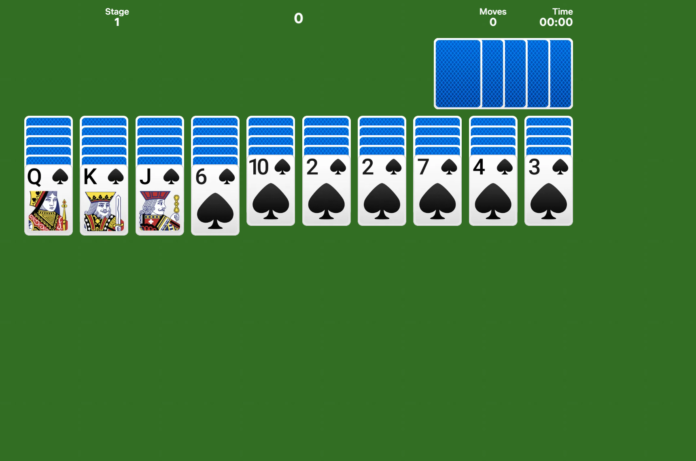Beneath the simple interface of cards in grids lies a challenge that improves strategic thinking with every play. Unlike many casual diversions, Spider Solitaire demands forethought, diligence, and an understanding of actions and outcomes.
For players in search of more than quick reflexes, card aficionados craving logic over chance, and anyone wanting to enhance their mental clarity, Spider Solitaire offers a quiet yet potent mental workout. Each choice is a decision, each game a test of tactics and gradually, it cultivates real logical abilities, one move after another.
Simonsenco | casinoawareness | cindy-huynh | PardonRuns | splxkl
The Fundamentals of Spider Solitaire and Why They Matter
Played with two full decks totaling one hundred four cards, Spider Solitaire involves constructing sequences descending from King to Ace within a layout. Once a full sequence is finished within a single suit, it vanishes from the board. Victory arrives when all eight complete sequences have been taken away.
At first glance, it seems familiar suits, ranks, piles but the structure is uniquely stringent. Unlike Klondike or FreeCell, Spider Solitaire solely permits same-suit sequencing for shifting partial stacks, and the random draws from the leftover cards add ambiguity that evaluates strategic malleability.
The game presents three main difficulties:
- One suit (easy) – All cards share a suit, allowing for fluid stacking and clearer options.
- Two suits (medium) – Two suits necessitate more organization and foresight.
- Four suits (hard) – The full challenge. Winning relies on flawless planning and minimal errors.
The higher the difficulty, the more essential it becomes to ponder not just reactively, but proactively.
How Spider Solitaire Hones Logical Thinking
It Cultivates Strategic Forethought
Spider Solitaire rewards the ability to envision several moves ahead. Early in a game, a tempting maneuver like stacking a 9 on a 10 could block a key King or lock a column from being cleared. Making that maneuver without considering its long-term impact frequently leads to a dead end.
To play well, you must anticipate how the board will evolve. You weigh options, predict consequences, and constantly reevaluate your path abilities directly linked to logical planning and problem solving.
It Teaches Pattern Recognition
Success in Spider Solitaire relies on noticing useful patterns: sequences that can be rearranged, duplicate cards that can be consolidated, or buried cards that are crucial to future progress.
Over time, players develop a kind of visual intuition instantly recognizing setups that are promising or dangerous. This mirrors how logic often operates in the real world: through patterns that, once identified, unlock complex systems.
It Encourages Problem Decomposition
Spider Solitaire presents a large problem: organize and clear the entire tableau. But skilled players instinctively break that challenge into smaller steps:
- Free a column.
- Create a full descending run.
- Expose a face-down card.
This form of divide-and-conquer thinking is central to logic-heavy disciplines like mathematics, coding, and systems design. Rather than getting overwhelmed, players learn to segment problems and solve them step-by-step.
It Builds Resilience Under Uncertainty
Spider Solitaire, particularly at higher difficulties, often confronts you with imperfect information. You don’t always know what cards are buried or what will be drawn next. So you make the best move with the data you have while minimizing potential risk.
This encourages fluid thinking: using educated hunches, managing uncertainty, and adapting choices as new information becomes available. These are pragmatic thinking skills, relevant in corporate strategy, monetary planning, and even interpersonal decisions.
The Psychological and Cognitive Rewards
Strengthened Concentration Span
Most Spider Solitaire games last between a quarter of an hour to three-quarters of an hour, and each one demands sustained focus. There are no speedy shortcuts to success. This focus assists bolster attentional oversight your means to center without distraction which is important in both scholarly and expert environments.
Improved Working Memory
Working memory includes holding and manipulating data mentally, like remembering where a certain card is buried or tracking possible actions across numerous tableau stacks. Research distributed in Frontiers in Human Neuroscience noted that activities necessitating planning and sequencing (like Spider Solitaire) can significantly improve working memory execution over time.
Enhanced Decision-Making Abilities
When you play Spider Solitaire regularly, you get better at recognizing when to act and when to wait patiently. You also become more relaxed, evaluating the trade-offs of each maneuver. Gradually, this practice translates to better, more thoughtful decision-making off the screen as well.
How to Use Spider Solitaire as a Thinking Instrument
If you want to go beyond casual play and actually use Spider Solitaire to build your logical thinking, approach it intentionally. Here’s how:
Play at Higher Difficulties
While 1-suit games are great for warming up, the real mental workout starts at 2 or 4 suits. These versions demand a deeper understanding of planning, probability, and timing.
Pause and Analyze Your Maneuvers
Don’t just play on intuition. Before making a maneuver, take a few seconds to mentally map what that action might unlock or obstruct. Train yourself to “see ahead” a few maneuvers.
Track Your Win Rates
Carefully keep count of your success rate at each level of play. Analyze this data to spot patterns in your strategy and see where improvement can happen. Developing this habit reinforces thoughtful consideration.
Review Your Errors and Mistakes
Take a moment after a game concludes, especially one ended in defeat, to ponder closely: What was the pivotal point leading to loss? Did a chance slip by unnoticed or an unnecessary chance get taken? Learning from your behaviors is among the best approaches to sharpening reasoning abilities.
Limit the Use of Undo and Hints
Modern Spider Solitaire applications frequently furnish “undo” or “hint” buttons. Employ them sparingly. Relying too heavily on them can disrupt the learning process. Instead, test yourself to think through difficult moments rather than simply clicking a way out.
Why Spider Solitaire Has Stood the Test of Time
Unlike numerous mobile games planned to be obsessive or endlessly commercialized, Spider Solitaire stays refreshingly free of distractions. There are no timers, mystery boxes, or artificial urgency. This purity allows for focused, intentional play, and it’s why the game continues to appeal to thinkers and strategists.
The game has also maintained relevance by evolving across platforms. Whether you’re playing on Windows, iOS, Android, or internet versions, Spider Solitaire stays accessible and timeless.
It’s not flashy, but it is effective, particularly for those who take pleasure in games that quietly better the way they think.
oldjhcc | thebabycares | youleadit | TicketPang | apnewsonline
Final Thoughts: One Move at a Time
Spider Solitaire doesn’t just pass the time it trains your brain. Every move you make exercises a different muscle in the logical thinking toolkit: planning, pattern recognition, risk assessment, and memory.
It’s not about rushing through the levels without consideration. It’s about strategically plotting each placement of cards with mindful deliberation. So the next instance you launch Spider Solitaire, refrain from perceiving it as a brief distraction from logical reasoning. Regard it instead as mental training artfully disguised as a card game. With each judicious maneuver, you’re cultivating improved habits not solely for gameplay victories, but for flourishing in life’s other arenas.
While Spider Solitaire may appear a simplistic card-matching diversion, it covertly functions as a potent instrument for developing keen analytical acumen. From enhancing attention and recollective skills to refining strategic foresight and prudent decision-making in unpredictable situations, it surreptitiously offers authentic cognitive benefits one thoughtful turn after another.

